The plan of the lesson
| Long-term plan unit: | School | ||||
| Date: | Teacher name: Amina Saparovna | ||||
| Grade: 1 |
| ||||
| Theme of the lesson: | |||||
| Lesson objectives
| L1 recognise short basic instructions for a limited range of classroom routines spoken slowly and distinctly 1.L3 recognise with support common names and names of places recognise the spoken form of a limited range of everyday and classroom words 1.S3 pronounce familiar words and expressions intelligibly 1.S5 use words in short exchanges 1.R1 recognise sound and name the letters of the alphabet 1.UE13 use have got/has got to describe ability | ||||
| Success criteria
| Learners have met the learning objective if they can: All pupils can pronounce words. More pupils can read and write words. Some pupils can use words in short constructions. | ||||
| Value links
| 1. Listening to the teacher. 2. Listening to each other. 3. Take turns. 4. Encourage each other. 5. Helping each other | ||||
| Cross-curricular links
| Russian language, world cognition | ||||
| ICT skills
| PPT, video material, cards with new words, cards with tasks, ICT | ||||
| Previous learning
| “Greetings and names”, “Colors”, “1 to 20”, “Classroom objects”, “Initial letters”, “Overwriting (lower case letters)”, “Family and friends: She is…/ He is …/You are…/I’m…”, “Making a family silhouette picture”, “Days of the week ” | ||||
| Plan | |||||
| Planned timings
| Planned activities
| Resources
| |||
| Beginning/ Challenge stage 5 min
Middle/ Comprehension stage 30 min
End/Reflection 10 min
| I.Greeting. (T.-Cl.) T: Good morning, Children! T: My name is Amina Saparovna and today I your English teacher. Now, let's watch the video, sing a song with the children. Cl: (watching) T: Let's answer the questions. What date is it today? Cl: (answers) T:It is April, T:What day of the week is it today? Cl: (answers) T: It is
II.Actualization:2 minutes
1. T: Underline the names of the animals you can see in the picture. Подчеркните названия животных, которые изображены на картинке.
Horse, butterfly, frog, dog, cat, pig, hen, chicks, lizard, ladybug, ant, cow, bee, rabbit, sheep, goat, goose
III. Determination of theme: 2 T: Well done! Look at the screen listen and watch the video. Cl: (watching) T: What do you think this theme is? T: Right you are! Have got/ has got (У меня есть. Я имею)
IV. determination of aims. Today we will learn how to make sentences correctly and use the have got/has got construction I. Warming-up. Phonetical drill. T: T: Now, I’ll read this poem, then repeat after me!
[ʌ] One, one, one, little dogs run [u:] Two, two, two, cats see you [i:] Three, three, three, birds in a tree [ɔ:] Four, four, four, frogs on the floor. (T-CL) T: Translate this poem
II. Introduction of new theme. Sound-letter analysis
2.1 T: Let’s get acquainted with new words,
Hen-[hen]-курица
Letter [eits], sound [h], leter [e], sound [i], leter [en]-sound [n]
Rabbit-[ˈræbɪt]-кролик
Letter [a:], sound [r], letter [ei], sound [ʌ], leter [bi:], sound [b], leter [ai], sound [i], leter [ti:]-sound [t]
Horse-[ hɔːs]-лошадь
Letter [eits], sound [h], letter [or], sound [ɔ:], leter [a:], sound [r], leter [es], sound [s], leter [e], sound [i]
Dog-[ dɒɡ]-собака
Letter [di:], sound [d], letter [ou], sound [o], leter [dʒi], sound [g]
Cat-[ kæt ]-кошка (кот) Letter [ci:], sound [c], letter [ei], sound [a], leter [ti:], sound [t]
Cow- [kaʊ]-корова Letter [ci:], sound [k], letter [ou], sound [o], leter [‘dʌblu:], sound [u],
Sheep-[ ʃiːp]-овца Letter [sh], sound [ʃ], letter [ee], sound [i], leter [pi:], sound [p]
Pig-[ pɪɡ]-свинья
Letter [pi:], sound [p], letter [ai], sound [i], leter [dʒi], sound [g] (T-CL)
2.2 T: Well done! Let’s name this picture.
T: I have got a hen (У меня есть курица) I haven't got a hen (У меня нет курицы) Have i got a hen? (У меня есть курица?)
T: He has got a rabbit (У него есть кролик) He hasn’t got a rabbit (У него нету кролика) Has he got a rabbit? (У него есть кролик?)
T: You have got a pig (У тебя есть свинья) You haven't got a pig (У тебя нет свиньи) Have you a pig? (У тебя есть свиньи?)
T: She has got a dog (У него есть собака) she hasn’t got a dog (У него нету собаки) Has she got a dog? (У него есть собаки?)
T: We have got a horse (У нас есть лошадь) We haven't got a horse (У нас нет лошади) Have we got a horse? (У нас есть лошадь?)
T: They have got a cat (У них есть кошка) They haven't got a cat (У них нет кошки) Have they got a cat? (У них есть кошка?)
III. Dynamic break T: Now we'll rest. Look at the screen and repeat. Cl: (repeat)
IV. Fixing 4.1. Впиши нужную форму глагола to have Например: I have got a dog I … got a dog. Mary … got a cat. My family … got a pig. They … got horse. Tom … got many sheeps. We … got many rabbits. My father … got a cow.
Ex-2 Вставь «have» или «has». Например: Has her parents got five sheeps? 1. ….. her parents got five sheeps? 2. ….. the dog got a puppy ? 3. ….. Sue got a cat ? 4. …… your sisters got a horse? 5. …… the bird got corn ? 6. …… Ben got a pig? 7. …… the table got four rabbits ? 8. …… the boys got hen?
V. Reflection
5.1. Reflection on content: The game I have got? T: (pictures) Name the picture (pig, dog…..) T: Translate into English: У меня есть лошадь. У нас есть свинья. У меня нет овцы. У него есть собака.
-Well done!
5.2. Emothional reflection: T: - if you have learned new words and use them in short sentences, choose the green smiley face. -If you have learned new words, choose the yellow smiley face - If you find it difficult, choose a red smiley face
5.3.Mood T: What is your mood today?
5.4. Formative assessment T: Well done! Great!
5.5. Home tasks T: learn words and write them down in your copybooks.
The lesson is over. Good bye!
|
https://youtu.be/tVlcKp3bWH8
Card PPT
PPT
https://youtu.be/zUGMouIS7t4
PPT
Cards, PPT
PPT, pictures
| |||

 Получите свидетельство
Получите свидетельство Вход
Вход


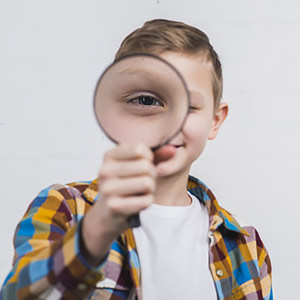
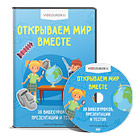
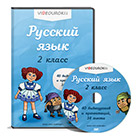
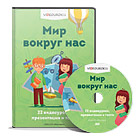
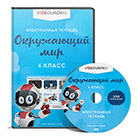
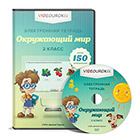
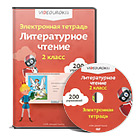
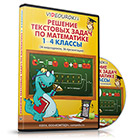
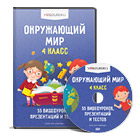
 Урок английского для 1 класса (761.27 KB)
Урок английского для 1 класса (761.27 KB)
 0
0 151
151 0
0 Нравится
0
Нравится
0








